Doctor Who – “Eve of the Daleks” Review – Running Out of Time
Clint Hassell gives his SPOILER-filled commentary on the New Year’s Day 2022 special.
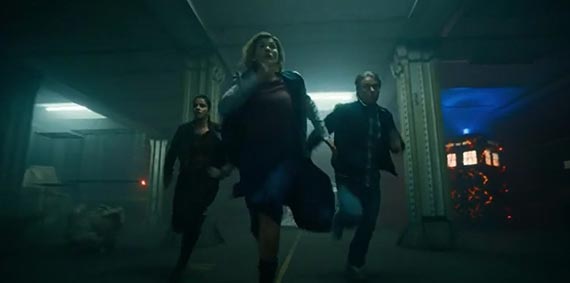
Note: this review contains full SPOILERS for the New Year’s Day 2022 special.
With a novel script that focuses on humor and character development, fantastic cinematography, and the two best guest stars in recent memory, “Eve of the Daleks” escapes the repetitive nature of its premise to become one of the most clearly realized Doctor Who episodes of the Thirteenth Doctor’s tenure.
Chris Chibnall’s script for “Eve of the Daleks” feels much like an episode from the showrunner’s Torchwood, in that it utilizes the simple, science fiction premise of a temporal loop as the backdrop for deep character exploration. What is distinctive about Chibnall’s script is that, unlike Dan’s cited example of Groundhog Day, all of the main characters are aware that they are stuck in a time loop. This significantly curtails the number of repeated moments within the episode, as both the protagonists and the invading Daleks use their foreknowledge to change their behaviors in successive iterations of the time loop. This unique concept layers a “cat-and-mouse” element onto an otherwise standard base-under-siege plot, allowing the interactions of the small cast – – and not complex plot intricacies – – to fill the confined spaces of ELF Storage.
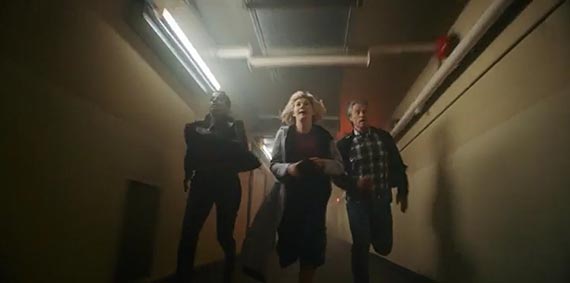
It is particularly notable that, rather than playing to the expectations of the audience, Chibnall foregoes most of the tropes of time loop stories, instead using each successive repetition to further craft his narrative. The pre-credits teaser establishes the setting and introduces all of the characters, including Sarah’s mother, Mary, and the never-seen Jeff. The first repetition skips the expected recap of everything just seen, cutting immediately to the characters’ overwhelming sense of déjà vu and the reveal that Jeff has a storied collection of contraband items, including taxidermy, festival couture, and expired cans of “Beef N Beans.” The second repetition brings all of the main characters together, posits the idea of using the current iteration to prepare for the impending repeat, and firmly establishes the second unique plot twist: the time loop shortens by one minute, with each reset, an ingenious idea that adds a literal countdown to the figurative “ticking clock” narrative. With six minutes to midnight, Chibnall injects some character development into the episode, as Sarah sees the good heart beyond Nick’s weirdness. This poignant moment is given more weight in the next cycle, as a clever, new threat is introduced: characters must survive at least one minute, in order to be reincarnated in the next cycle. The plan to destroy the building arises, as does the notion of splitting up to accomplish more tasks, and the idea of using the phone as an ignition device. The subsequent failed cycle reminds the audience that the Daleks are similarly planning ahead, leading to the Doctor using the penultimate repeat as a decoy, enabling the team to escape the distracted Daleks in the final iteration, thanks to even more of Jeff’s discovered contraband.
At no point does “Eve of the Daleks” devote time to a failed subplot; each of the cycles are important. Despite the structure of the episode, the story never feels repetitive, as each iteration is laced with humor and plot or character development to break up the cyclical nature and prevent monotony.
This is not to say that “Eve of the Daleks” is Chibnall’s masterpiece. While the episode’s focus on humor is one of its most endearing qualities, it does undermine the portrayal of its guest cast. Sarah’s constantly chiming phone indicates that she is far too popular and beloved to be this downtrodden. The interactions between Nick and Sarah are too familiar for the two to interact as infrequently as claimed. Nick saves a Monopoly game from “Jan ’21,” in order to justify seeing her; however, she responds to his inquiry about contraband items with an impatience reserved for a constant bother. Further, Sarah pivots from berating Nick as a “weirdo” to recognizing his “good heart” in a mere four sentences. The episode does such a good job of humorously infantilizing the two that it is difficult to believe that they end up romantically paired at the end of the episode.
And yet, due largely to the extreme talents of Aisling Bea and Adjani Salmon as Sarah and Nick, respectively, the audience can’t help but cheer on the pair, through the episode. The two are perhaps the best examples of perfect casting since Jo Martin as Ruth Clayton. Aisling Bea capably portrays Sarah’s affable exasperation, especially considering the number of scenes in which she must react to a voicemail, a text, or an off-screen character. Bea quickly turns from funny to fearful. Though it results in her quick extermination, Sarah’s opposition of a Dalek reads as character growth, a defiant act amongst a messy life.
Nick lives in what sounds like the world’s tiniest apartment, yet devotes “platinum-level” money to cataloging a shrine of personal items left behind by women who will never call him back. This behavior is incongruous and says a lot about the weight Nick puts on these failed relationships and his attachments to other people. Nick does not have mature, healthy relationships. He’s not quirky; he’s deeply flawed. Adjani Salmon wisely straddles the line between playing Nick as completely serious and as a humorous exaggeration, ensuring the audience can identify with Nick’s struggles, while still being entertained by his foibles.
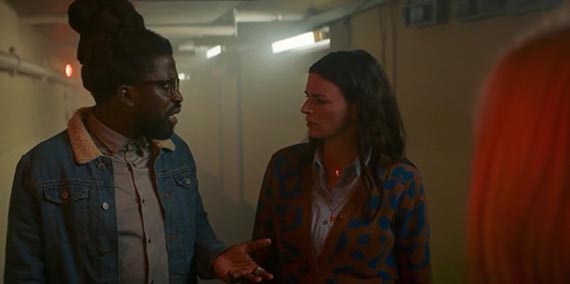
In fact, the guest cast gets meatier roles than either of the companions, with Dan’s sole contribution being his distraction of a second Dalek. Apropos for comedian John Bishop, Dan uses humor to stall the Dalek. Fairing only slightly better is Yaz, who finally admits to herself that her feelings for the Doctor have a romantic undercurrent. Doctor Who has dealt frankly with same-sex attractions before – – even ones involving the Doctor – – but it’s difficult to discern how seriously the narrative is willing to treat this one. Yaz’s coming out to Dan is clichéd, and only works because the plot requires the conversation to occur in less than four minutes. Further, the scene is followed up by Dan outing Yaz to the Doctor – – a terrible betrayal of Yaz’s friendship, even if it is under the guise of “surely, the Doctor already knows.” The reveal comes so late in Yaz and Thirteen’s story; will there be time in the next two episodes to adequately address this storyline? Or could this plot thread be the end for our first-ever, all-female TARDIS team? Note that it is Yaz’s coming out to Dan that allows both to be ambushed by the Daleks, resulting in their deaths.

Still, it’s difficult to find much fault in an episode that not only circumvents the tropes of time loop narratives, but does so with such humor and aplomb. Though it follows on plot remnants from Series 13, “Eve of the Daleks” runs counter to the sprawling Flux by developing a small cast within a simple premise. The script is Chibnall’s best since “The Woman Who Fell to Earth,” and is evidence that holiday specials don’t need the pomp and circumstance of a commercial Christmas – – or a regeneration – – to be remarkable.
Random Musings:
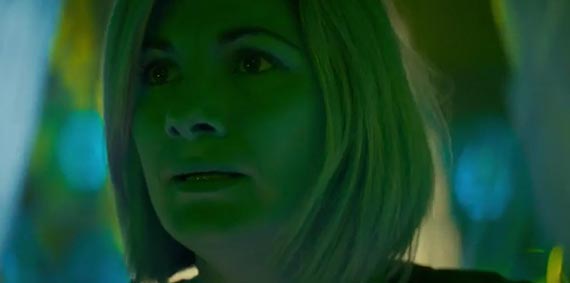
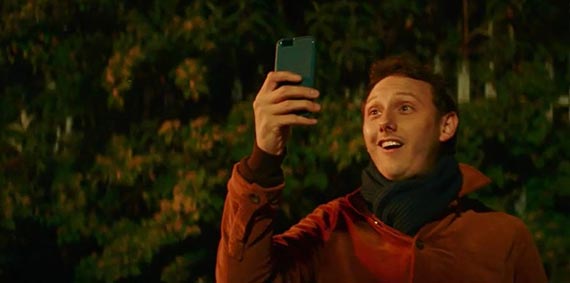
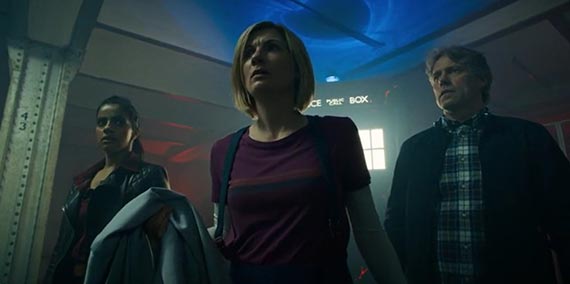
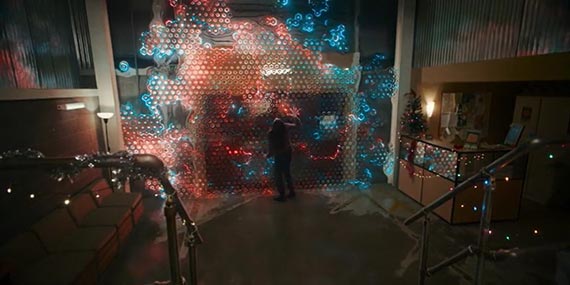
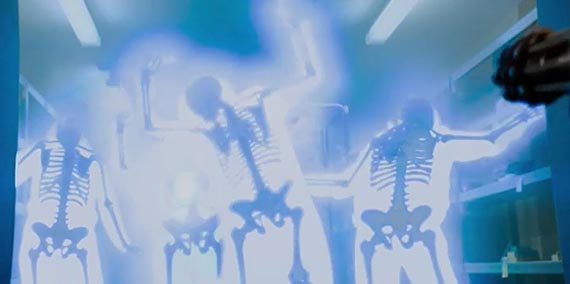
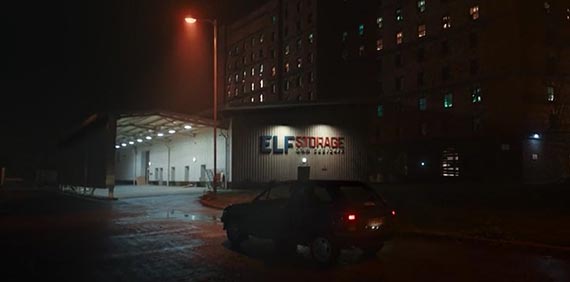
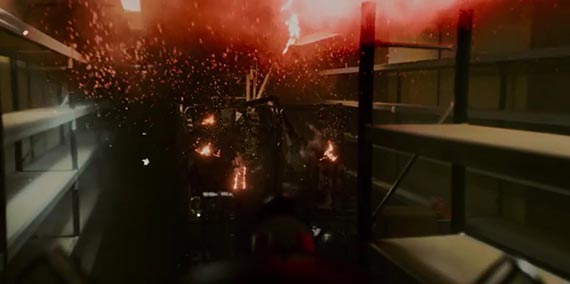
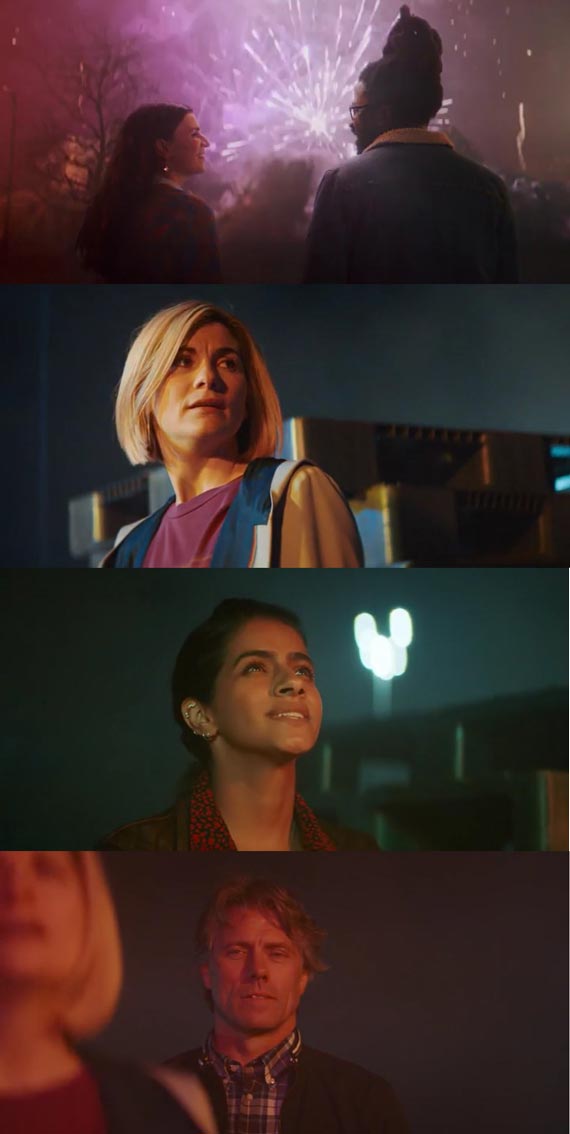
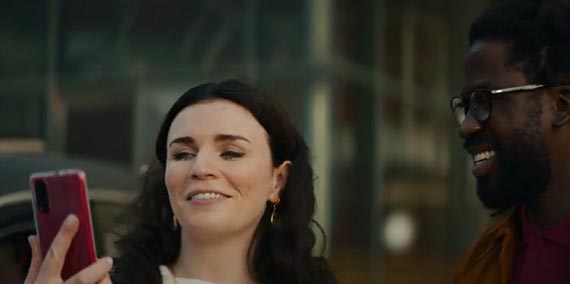
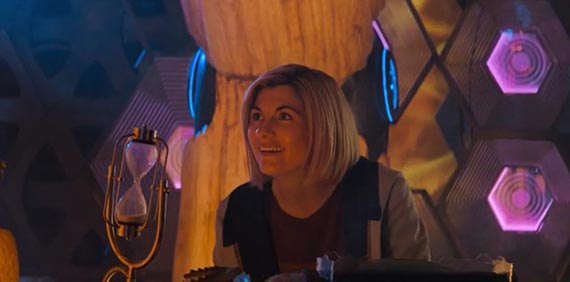
(Time) Capsule Review
“Eve of the Daleks” is incredibly enjoyable, combining a stunning pair of guest actors with a script that both mines its characters’ relationship woes for laughs and undermines the tropes of time loop narratives to evade audience expectations. The episode contextualizes Yaz’s romantic interest in the Doctor, but doesn’t have the time to develop the storyline beyond a clichéd revelation and some minor foreshadowing. By emphasizing the repeated motif of characters running, the cinematography lends energy to what could’ve been a monotonous, industrial setting.
If you’d like to interact with the author of this article, follow him on Twitter @ClintHassell.








